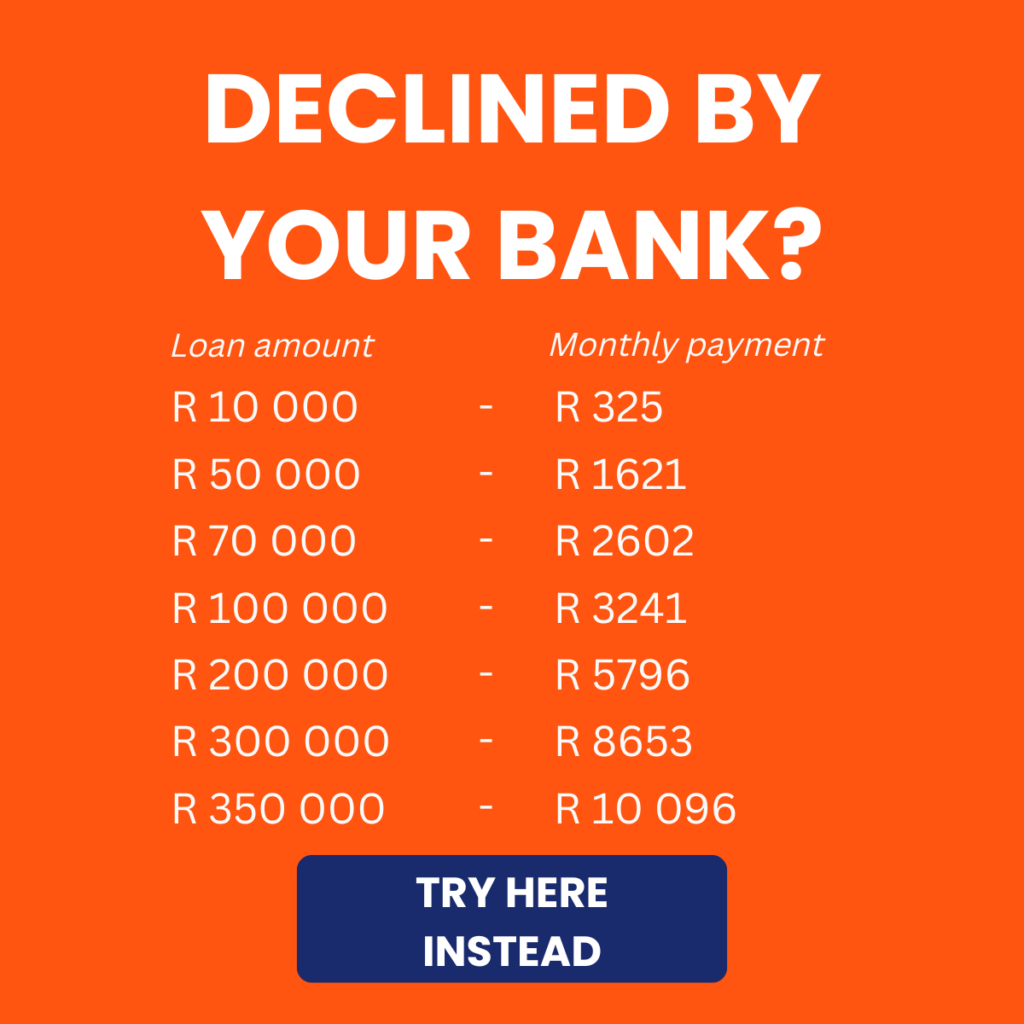
An unsecured loan provides a flexible and accessible way to borrow money without needing to offer assets like property or a car as collateral. Ideal for personal expenses or debt consolidation, it allows borrowers to access funds quickly and often comes with fixed interest rates, making budgeting easier. With no asset risk and a simpler approval process, could an unsecured loan be the right choice for your financial needs?
Key Takeaways
- Unsecured Loans Offer Flexibility: These loans do not require collateral, making them more accessible to borrowers with solid credit histories. They are often approved quickly, making them suitable for smaller financing needs or consolidating debt.
- Secured Loans Provide Larger Amounts: Secured loans, backed by assets like property or vehicles, allow for higher borrowing limits and more favourable interest rates. However, they carry the risk of asset loss if repayment terms are unmet.
- South African Lenders Offer a Range of Loan Options: Leading financial institutions such as Capitec, Standard Bank, and African Bank provide various secured and unsecured loan options with flexible terms tailored to the specific needs of South African borrowers.
What is an Unsecured Loan?
An unsecured loan is a credit option where the borrower does not need to provide any asset, like a house or vehicle, as security. This means that if the borrower cannot repay the loan, the lender has no specific asset to claim. Unsecured loans can serve multiple purposes, such as consolidating debt or covering costs for major events like weddings. Approval for these loans depends primarily on the applicant’s creditworthiness rather than any physical collateral.

Examples of Unsecured Loans
- Unsecured Business Finance: Business loans without asset backing, where eligibility is determined by the borrower’s credit history.
- Personal Loans: Loans for various personal expenses, approved based on credit score and income, without collateral.
- Credit Cards: A form of revolving credit without asset security; the credit limit depends on the borrower’s credit score.
- Student Loans: Loans designed to fund education, approved based on creditworthiness without any collateral requirements.
- Business Overdrafts: A facility that allows businesses to overdraw their account based on the business’s credit profile, requiring no asset security.
- Revolving Credit Facilities: A flexible option providing businesses with access to funds as needed, without collateral for each withdrawal.
If you’re considering an unsecured loan to manage or reduce debt, several key factors could impact your decision, influencing both immediate needs and long-term financial goals.
Advantages
- No Need to Use Personal or Business Assets as Collateral: Unsecured loans allow you to access funds without risking assets such as your home or vehicle as security.
- Quicker Approval Process: Since no assets need appraisal, lenders can often complete the approval process more quickly.
- More Suitable for Smaller Borrowing Needs: If you’re looking to borrow a modest amount, an unsecured loan may be a practical choice.
- Accessible to Those Without Strong Business Credit: Borrowers without high business credit scores or with a limited business history may still qualify for unsecured loans, as several options cater to those with limited or poor credit histories.
Disadvantages
- Shorter Repayment Periods: Some lenders may require repayment over a shorter period, leading to higher monthly instalments. However, repayment terms vary by lender.
- Higher Interest Rates: Without collateral backing, lenders may charge higher interest rates to offset their risk. However, a strong credit profile may help lower this rate.
- Difficulty in Securing Larger Amounts: Without collateral, obtaining approval for larger loan amounts—especially for debt consolidation—can be challenging, as lenders place greater emphasis on credit scores and financial stability.
- Increased Lender Risk: Unsecured business loans pose more risk to lenders than secured loans. Unlike secured loans, where lenders have asset-based security, unsecured loans rely heavily on the borrower’s creditworthiness, exposing lenders to higher vulnerability if repayments are missed.
Understanding how to compare loan offers from different lenders is essential to securing the most favorable terms, as interest rates and fees can differ significantly depending on the lender.
About Arcadia Finance
Easily secure your loan with Arcadia Finance! Enjoy zero application fees and access a network of 19 trusted lenders, each compliant with South Africa’s National Credit Regulator standards. Experience a smooth, reliable process tailored to meet your financial needs.
What is a Secured Loan?
A secured loan requires providing an asset as collateral, which guarantees the loan amount. The asset’s value generally matches or exceeds the loan requested, reducing the lender’s risk. Commonly used assets include homes and vehicles, though other valuable items, such as cash, may also serve as collateral.
Secured loans offer access to larger amounts since the collateral reduces the lender’s risk. For example, if you use a vehicle valued at R357 000 as collateral, you may qualify to borrow up to that amount.
Examples of Secured Loans
- Secured Business Finance: Business loans backed by assets, such as property or equipment, reduce the lender’s risk and increase borrowing potential.
- Asset Refinance: This involves refinancing an existing loan by using an asset to secure more favourable terms or borrow additional funds.
- Mortgages: A secured loan where the property itself is used as collateral, ensuring the lender has recourse if repayments are missed.
- Car Loans: Loans specifically for purchasing vehicles, with the vehicle itself serving as collateral.
- Homeowner Loans: Loans that allow homeowners to borrow against their property’s equity, using the home as security.
Advantages
- Access to Larger Loan Amounts: Because the financial risk for the lender is reduced, secured loans typically allow borrowers to request significantly higher amounts than unsecured options.
- Longer Repayment Terms and Lower Interest Rates: Many lenders offer extended repayment periods and more competitive interest rates when the loan is backed by collateral, making repayments more manageable over time.
- Easier Approval Process: Since the loan is secured by an asset, lenders may be more inclined to approve these loans, even for applicants with less-than-ideal credit.
Disadvantages
- Risk of Losing Collateral: If you are unable to meet your loan repayments, you risk losing the asset used as collateral, such as your home, vehicle, or other valuable property.
- Restrictions and Conditions: Some secured loans have conditions, such as maintaining a minimum balance in the account linked to your loan or limitations on how the borrowed funds can be used.
- Longer Processing Times: Secured loans may have a longer approval process, as the lender must evaluate the value and suitability of the collateral offered.
Choosing between a secured or unsecured loan can significantly impact your financial flexibility. Discover the unique features of each option, from collateral requirements to potential interest rates, and see how they align with your financial goals.

Secured vs. Unsecured Loans
When choosing between a secured or unsecured loan, your decision should primarily reflect your financial needs and the level of risk you are willing to accept to achieve your financial goals. If your objective is to consolidate or reduce high-interest debt, an unsecured personal loan may be the most appropriate option. This type of loan offers several advantages, including fixed interest rates, flexible repayment options, and often a quick decision-making process, typically within the same day. While a secured loan may enable you to borrow a larger amount, it carries the added risk of losing your collateral if you are unable to fulfil your repayment obligations.
Debt consolidation can simplify your repayment process by merging multiple loans into one manageable payment. Learn how a debt consolidation loan can reduce your monthly obligations and possibly secure a lower interest rate, giving you peace of mind and control over your finances.
Comparison of Common Uses for Unsecured and Secured Loans
| Category | Unsecured Loans | Secured Loans |
|---|---|---|
| Primary Purpose | Short-term financing without collateral | Long-term financing with collateral (e.g., property, vehicle) |
| Debt Consolidation | Used to consolidate high-interest debts like credit cards or store accounts into a single loan with lower monthly repayments. | Used for consolidating significant debts at lower interest rates by offering collateral. |
| Home Improvements | Funds small-to-medium renovations like solar panels, kitchen remodels, or energy-efficient upgrades without requiring the home as collateral. | Financing large renovations, repairs, or extensions, such as adding rooms or pools, using the property as collateral. |
| Vehicle Financing | Not typically used for vehicle purchases. | Commonly used to buy cars, trucks, or motorcycles, with the vehicle acting as collateral. |
| Education Funding | Covers school fees, university tuition, or specialised training, especially when bursaries or government funding are insufficient. | Rarely used for education, as unsecured loans are more suitable for smaller educational costs. |
| Personal Events | Finances personal events like weddings or holidays, allowing repayments over time. | Not typically used for personal events. |
| Home Purchase | Not suitable for buying property. | Used primarily for purchasing homes or investment properties through mortgages. |
| Business Financing | Limited use for business purposes due to smaller loan amounts and higher interest rates. | Commonly used for business expansion, equipment purchases, or operations, with business or personal assets as collateral. |
| Emergency Expenses | Suitable for smaller emergencies that require quick access to funds. | Used for large, unexpected expenses like medical emergencies, offering larger amounts at better terms. |
Popular South African Loan Providers
In South Africa, several reputable financial institutions and online lenders provide a range of unsecured and secured loan options to cater to the diverse needs of consumers. Here are some of the most prominent providers:
| Bank | Unsecured Loan Amount (R) | Repayment Term | Interest Rate Type | Type | Approval Speed |
|---|---|---|---|---|---|
| Capitec Bank | Up to R250,000 | Flexible | Fixed | Unsecured Personal Loans | Fast |
| Standard Bank | Varies | Longer Terms Available | Fixed | Unsecured & Secured Loans | Varies |
| African Bank | Up to R250,000 | Up to 72 Months | Fixed | Unsecured Personal Loans & Consolidation Loans | Fast |
| FNB | Up to R300,000 | Flexible | Competitive | Unsecured & Secured Loans | Flexible |
| Nedbank | Varies | Varies | Varies | Unsecured Personal Loans & Secured Loans | Varies |
Conclusion
Choosing between a secured and unsecured loan depends on your individual financial circumstances, borrowing needs, and risk tolerance. Unsecured loans offer flexibility and accessibility without requiring collateral, making them ideal for smaller borrowing amounts or debt consolidation. In contrast, secured loans provide access to larger sums and lower interest rates but come with the risk of losing valuable assets. By understanding the key differences between these loan types and considering your financial goals, you can make an informed decision that best suits your situation.
Frequently Asked Questions
The main benefit of an unsecured loan is that it does not require any collateral, such as a house or vehicle. This means that you don’t risk losing any assets if you’re unable to repay the loan, making it more accessible to those without valuable property to offer as security.
An unsecured loan is not backed by any asset, while a secured loan requires collateral. Secured loans typically offer larger loan amounts and lower interest rates but come with the risk of asset forfeiture if repayments are missed.
While it may be more difficult, some lenders do offer unsecured loans to individuals with less-than-perfect credit. However, these loans often come with higher interest rates to account for the increased risk to the lender.
Unsecured loans can be used for various purposes, including consolidating debt, financing home improvements, covering emergency expenses, or funding large personal events such as weddings or holidays.
Yes, unsecured loans generally have higher interest rates because they are considered riskier for the lender. Since no asset is provided as collateral, the lender relies solely on the borrower’s creditworthiness, leading to higher rates compared to secured loans.





